Strengthening Livelihoods through Sustainable NTFP Management in Cambodia
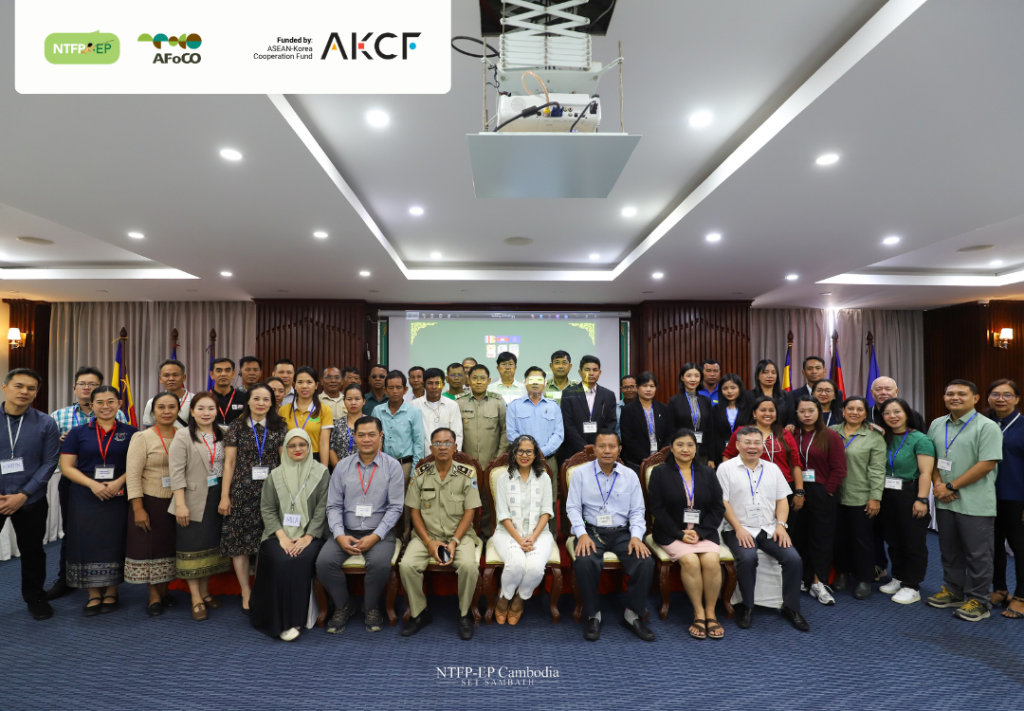
From July 6 to 11, 2025, leaders and local officials from Cambodia, Laos, Myanmar, and Vietnam gathered in Kamphong Thom for the NTFP Sustainable Resource Management Workshop. The event was organized by NTFP-EP Asia with Cambodia Livelihood Exchange Program (formerly NTFP-EP Cambodia) under a broader regional project with the Asian Forest Cooperation Organization (AFoCO), aiming to enhance resilience to forest fires while strengthening local livelihoods and market linkages. The workshop served as a hands-on learning platform for forest-dependent communities to deepen their understanding of sustainable non-timber forest product (NTFP) resource management. Participants came from community-based NTFP enterprises (CBNEs) and government agencies that support these enterprises, all with the shared goal of improving forest protection through sustainable and culturally grounded practices.
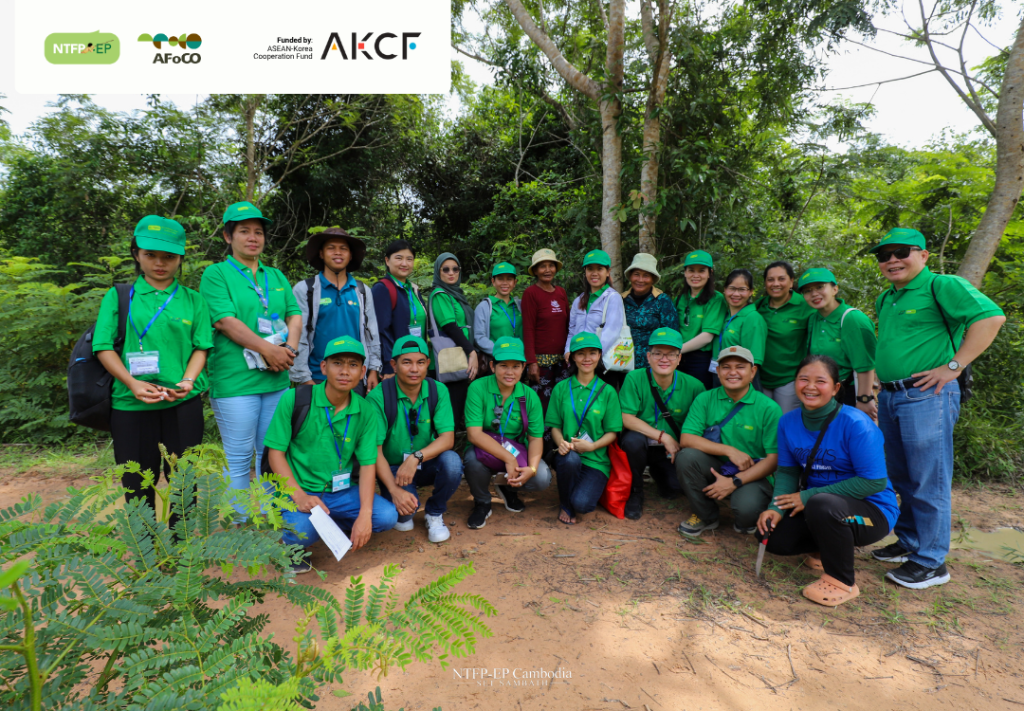
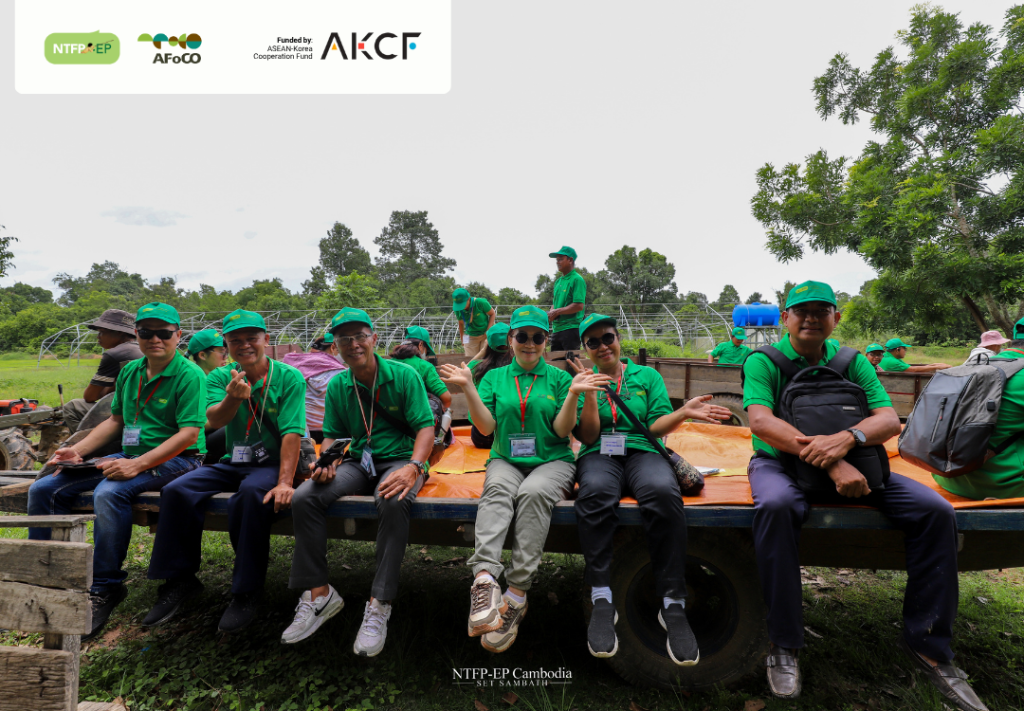
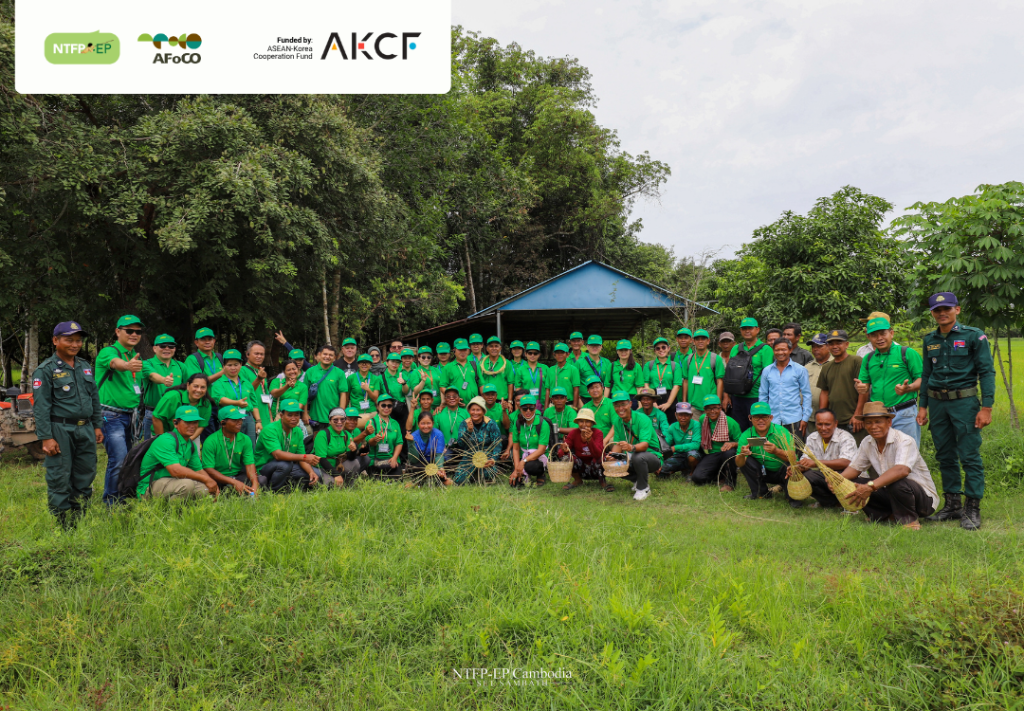
The five-day workshop focused on equipping participants with practical tools to manage NTFPs such as rattan, including rice field rattan, bamboo and bamboo shoots, Talipot palm, codonopsis root, and honey. These forest products not only serve as sources of income but are also deeply intertwined with the culture and identity of forest-based communities. The training covered a structured seven-step process, first developed by Dr. Mary Stockdale, to help communities assess, plan, and monitor their activities. Learn more.
Topics included identifying NTFPs for management, understanding the community’s goals for resource use, documenting existing practices, evaluating sustainability, and developing both resource management and participatory monitoring plans. The participants also explored technical tools like harvest protocols, resource inventories, and participatory monitoring methods such as forest walks and resource mapping.
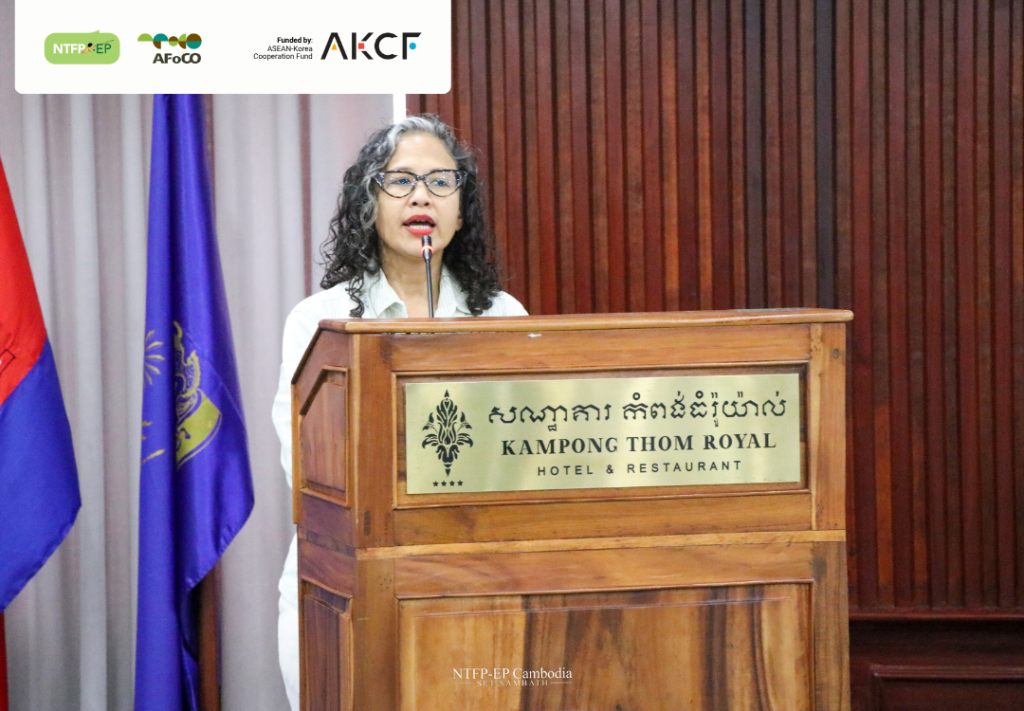
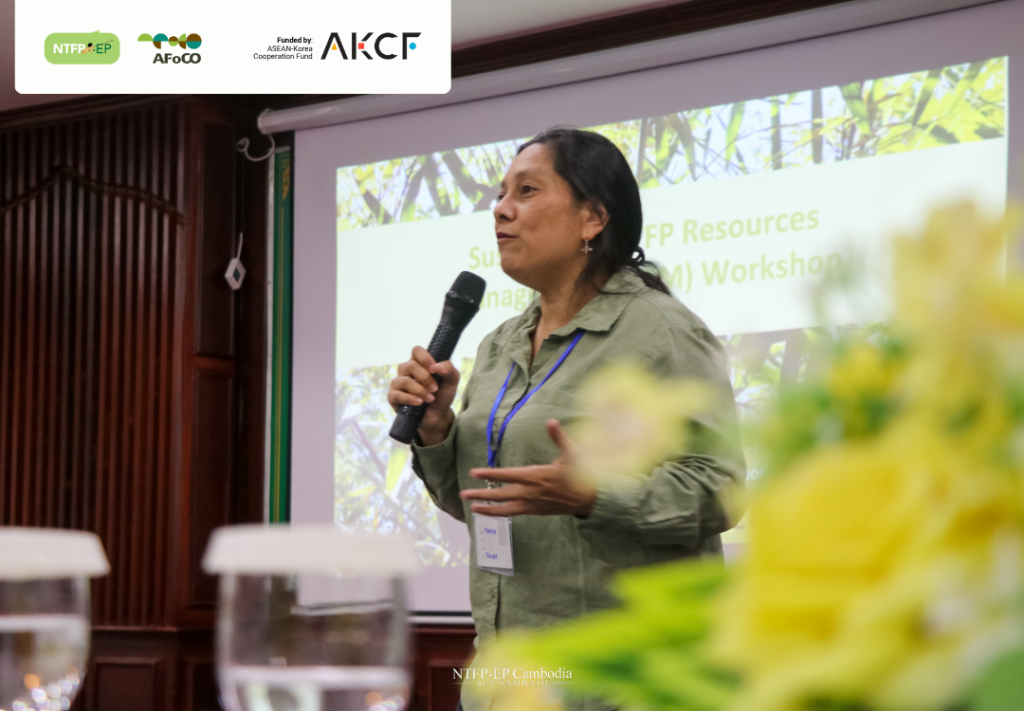
In photos: Ms. Crissy Guerrero (left) and Ms. Tanya Conlu (right), providing technical insights on strengthening livelihoods through sustainable NTFP management. Photo courtesy of Set Sambath/NTFP-EP Cambodia
The training team from the Philippines and Indonesia shared extensive field experience and technical knowledge, helping participants understand the connections between enterprise development, cultural values, and ecological sustainability. Insights were shared on supporting Indigenous territories, forest resource management, participatory approaches, and the integration of gender into ecosystem conservation, and livelihoods. The training team also provided a broader understanding of biodiversity management and community resilience, enriching discussions with regional perspectives on the challenges faced by local communities.
Participants engaged in dynamic learning sessions, group work, and field-based exercises that reinforce their theoretical learning with real-world applications. A key part of the workshop was a visit to a local community practicing sustainable NTFP management, allowing participants to observe how resource management plans are implemented on the ground. By the end of the training, participants not only gained new knowledge and skills but also reaffirmed their commitment to advancing community-based livelihoods that are ecologically sustainable and rooted in traditional knowledge. The workshop underscored the role of forest-dependent communities in forest conservation and protection and offered a tangible path forward for integrating sustainable NTFP management into ongoing enterprise development across the region.
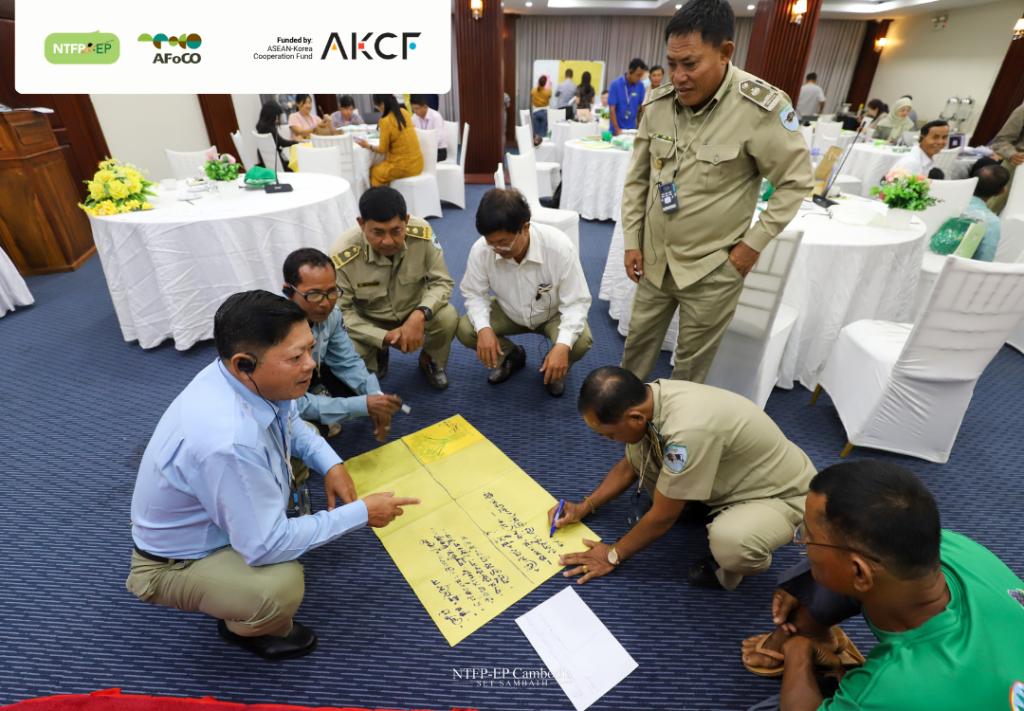
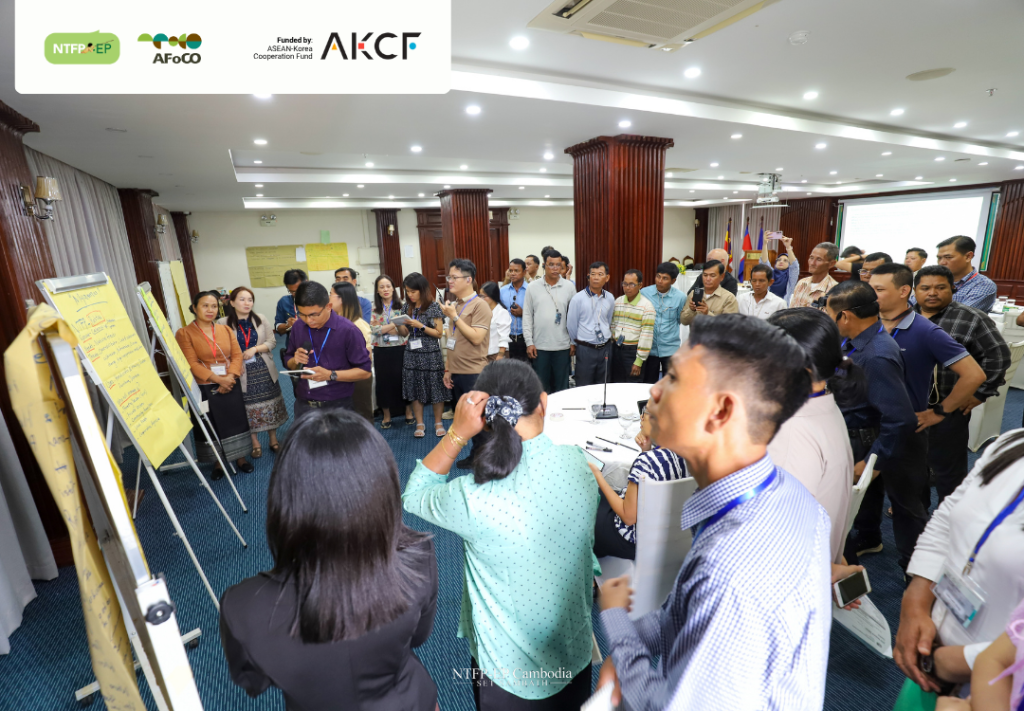
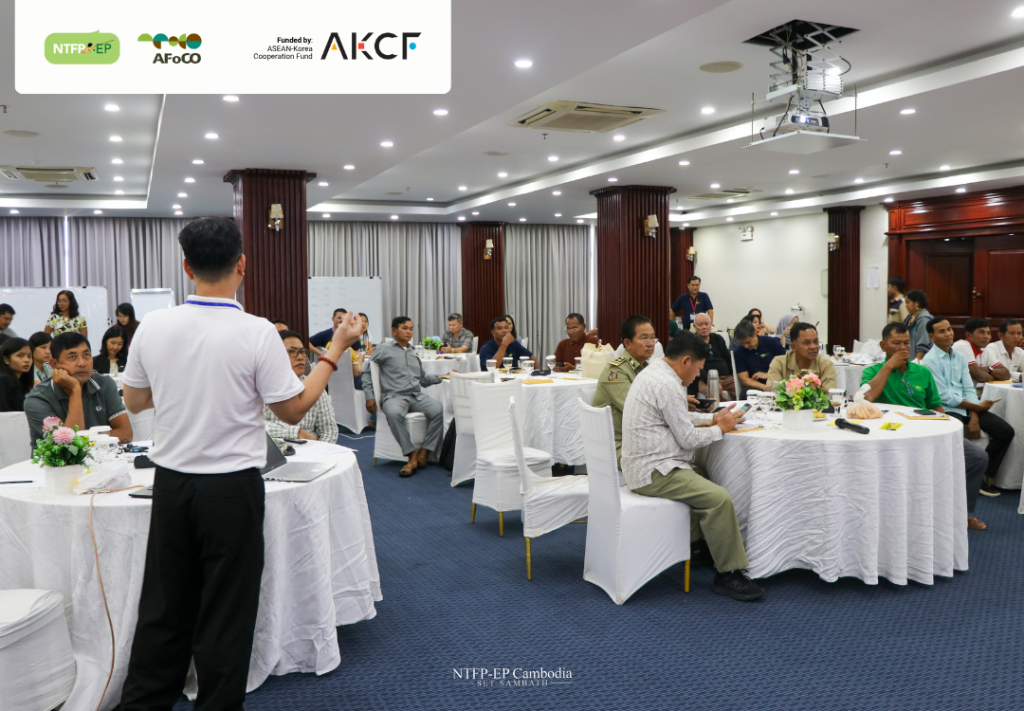
The Non-Timber Forest Products Exchange Programme Asia is co-implementing a project with the Asian Forestry Cooperation Organization (AFoCO) on the project entitled “Capacity Building on Enhancing Resilience to Forest Fire, and Strengthening Local Livelihood, and Market Linkages in Cambodia, Lao PDR, Myanmar, and Vietnam (CLMV) Countries”.
This management workshop was made possible through the support of the ASEAN Forest Cooperation (AFoCO) and the ASEAN-Republic of Korea Cooperation Fund (AKCF).
by Michelle Lapiz/NTFP-EP Asia



